At Aurora University, the safety and well being of the students, faculty, and staff are a top priority. A number of people are involved in this effort but a truly safe campus can only be achieved with the help and cooperation of everyone.
The information herein is important, complies with the Jeanne Clery Disclosure of Campus Safety Policy and Campus Crime Statistics Act and the Drug Free Schools and Communities Act, and will help us all in maintaining a safe campus environment that will support the high quality of education being provided at Aurora University. Read this material carefully. Aurora University's annual security report includes statistics for the previous three years concerning reported crimes that occurred on campus; in certain off-campus buildings owned or controlled by Aurora University; and on public property within, or immediately adjacent to and accessible from the campus. The report also includes institutional policies concerning campus security, such policies concerning alcohol and drug use, crime prevention, the reporting of crimes, sexual assault, and other matters.
Information herein is intended to provide a general overview. It does not constitute a contractual agreement between Aurora University and the recipient.
Campus Safety - A Shared Responsibility:
As an educational community, we expect Aurora University to provide a safe and secure environment for learning. Creating and maintaining such an environment, however, is a shared responsibility among all members of the community. Aurora University seeks to minimize criminal opportunities and encourages students and employees to be responsible for their own security and the security of others.
In addition to all scheduled responsibilities, the Campus Safety Department responds to emergencies and alarms, helps campus residents and visitors with directions and information, makes referrals to local agencies and assistance resources, provides and distributes educational/informational material on campus and personal safety, makes presentations to campus groups, and serves as the central location for campus safety information.
A newly formed University Safety and Security Committee will represent various constituencies on Campus. They will review, evaluate and make recommendations regarding current safety/security policies, procedures and priorities. Their initial charter promotes: personal safety; reduction of personal and University liability; preservation of resources; protection of personal and University property; involvement, responsibility and accountability; and constant and continual education regarding safety, security, health protection, and wellness.
Victims' "Bill Of Rights":
Aurora University is committed to providing appropriate support and referrals to people who have been victimized in some way (by crimes or violations of University policy) and choose to report the incident to Campus Safety or University Administration. At Aurora University, a victim has the right:
- to be treated with dignity, respect and compassion;
- to have confidentiality maintained (within the bounds of law and prudence);
- to have criminal procedures fully explained;
- to receive assistance with relocation, if desired;
- to receive referral information for available support services;
- to have an advisor or support person present;
- to be informed of the general outcome of proceedings;
- to be kept informed of the status of any perpetrator(s); and
- to request assistance from the University in deterring any harassment or retribution
Drug and Alcohol Use:
Aurora University recognizes the responsibility of maintaining an educational environment conducive to academic achievement and student growth in the development of mature and responsible adult behavior. The University seeks to assist in the development of mature adult behavior. The final choice, however, rests with the individual. Aurora University does not tolerate substance abuse and has adopted policies regarding this matter. University policies are stated in the University A-Book. Copies are available in the Student Affairs Department.
Standards of Conduct:
Aurora University prohibits the unlawful manufacture, possession, distribution, or use of illicit drugs and/or alcohol by students and employees. This policy applies both to on-campus and off-campus activities, including student sponsored social activities and professional meetings attended by University employees.
Statement of University Sanctions:
Compliance with this policy is a condition of employment for University employees. For students, it is a condition of continued eligibility to attend classes and/or reside on campus.
Discipline for violating the standards of conduct will be governed by the University's disciplinary policies and rules. Consistent with local, state and federal law, the University will impose sanctions on those who violate the standards of conduct, up to and including, expulsion and referral for prosecution.
Reporting Responsibility:
Employees are obligated to report any criminal drug/alcohol statute conviction for a violation occurring in the workplace.
Heath Risks Associated With The Use Of Alcohol And Illicit Drugs:
The table on the following page lists drugs by name (both pharmacological and common/street name), possible effects, and dangerous health risks associated with their use.
| Drug | Common Names | Possible Effects | Dangerous Health Risks |
| Alcohol: | |||
| Alcohol | Beer, liquor, wine, wine coolers | Depresses central nervous system; numbs judgment; feeling; coordination; mood changes: excitement, anger, jealousy, depression; lowered sexual function | Permanent brain tissue damage, heart and liver disease, mouth, stomach, throat cancer, addiction, blackouts, coma... death |
| Cannabis: | |||
| Marijuana | Pot, grass, reefer, roach, Maui Wowie, joint, weed, THC, Acapulco Gold | Dilated pupils and red eyes, lack of motivation, short-term memory loss, disoriented behavior, increased appetite, reduced concentration | Lung damage, cancer, psychosis, paranoia, addiction |
| Hashish | Hash | ||
| Depressants: | |||
| Barbiturates | Phenobarbital, Seconal, Nembutal, Tuinal, barbs, goofballs, downers | Depresses central nervous system, slowed heart rate and breathing, slurred speech, drowsiness, loss of consciousness, confusion, disorientation, taken in combination or with alcohol - very dangerous | Addiction, respiratory arrest, coma... death |
| Tranquilizers | Dalmane, Valium, Librium | ||
| Methaqualone | Soapers, Quads, Ludes | ||
| Hallucinogens: | |||
| Lysergic Acid | LSD, acid | Increased heart rate, blood pressure, dilated pupils, cold extremities, anxiety, panic | Flashbacks, memory and speech problems, psychosis, bizarre behavior, violence, addiction, coma... death |
| Diethylamide | Microdot, Mickey Mouse | ||
| Phencyclidine | PCP, Angel Dust, peace pill | ||
| Others | Mescaline, MDA, DMT, STP, Psilocybin, mushrooms | ||
| Inhalants: | |||
| Inhalants | Gasoline; glue; rush; White Out; aerosol products: vegetable spray, hair spray, deodorants, paint thinner | Slows all body functions, decreases breathing rate, decreased blood pressure. Lack of coordination, memory loss | Erratic heart beat and pulse, damage to brain and central nervous system, suffocation, unconsciousness, addiction... sudden death |
| Narcotics: | |||
| Nicotine | Cigarettes, cigars, chewing tobacco | Increase heart rate and blood pressure, nausea, diminished sense of taste | Addiction, lung cancer, tremors, convulsions, death |
| Stimulants: | |||
| Cocaine | Coke, flake, snow, crack | Dilated pupils, increased pulse rate and blood pressure, talkative, excited behavior, heart attack, insomnia, loss of appetite, sudden death | addiction, confusion, depression, suicidal urges, hallucinations, paranoia, convulsions, death |
| Amphetamines | Speed, whites, meth, Dexedrine, Biphetamine, crystal |
Crime Statistics:
The Jeanne Clery Disclosure of Campus Security Policy and Campus Crime Statistics Act requires all colleges and universities that receive financial assistance, under the programs authorized by Title IV of the Higher Education Act of 1965, to report the following crimes that occurred on "campus." The definition of "campus" includes any property owned, controlled, or used by the University as well as all public property that is within the same reasonably contiguous geographic area of the institution such as a sidewalk, street, other thoroughfare, or parking facility that provides immediate access to facilities owned or controlled by the institution.
- Murder - The willful (non-negligent) killing of a human being by another.
- Manslaughter - The killing of a human being through gross negligence.
- Sexual Offenses - Encompasses a number of sexual crimes involving penetration or intrusion (however slight) by whatever means against the victim's will.
- Forcible - Crimes categorized as forcible are: forcible rape, forcible sodomy, sexual assault with an object, and forcible fondling.
- Non-forcible - Non-forcible sex crimes include: incest and statutory rape
- Robbery - The taking or attempting to take, of anything of value under confrontational circumstances: by force or threat of force or violence and/or by putting the victim in fear of immediate harm.
- Aggravated Assault - An unlawful attack by one person upon another where the offender uses a weapon or displays it in a threatening manner, or the victim suffers obvious severe or aggravated bodily injury involving apparent broken bones, loss of teeth, internal injury, severe laceration, or loss of consciousness.
- Burglary - The unlawful entry into a building or structure with the intent to commit a felony or theft.
- Arson - Any willful or malicious burning or attempt to burn, with or without intent to defraud, a dwelling house, public building, motor vehicle or aircraft, personal property of another, ect.
- Motor Vehicle Theft - The theft or attempted theft of a motor vehicle.
- Liquor Law Violations - Violation of laws or ordinances prohibiting: the manufacture, sale, transporting, furnishing, possessing of intoxicating liquor; maintaining unlawful drinking places; bootlegging; operating a still; furnishing liquor to a minor or intemperate person; using a vehicle for illegal transportation of liquor, drinking on a train or public conveyance; and all attempts to commit any of the aforementioned (drunkenness and driving under the influence are not included in this definition).
- Drug Law Violations - Violations of State and local laws relating to the unlawful possession, sale, use, growing, manufacturing, and making of narcotic drugs. The relevant substances include: opium or cocaine and their derivatives (morphine, heroin, codeine); marijuana; synthetic narcotics (Demerol, methadones); and dangerous nonnarcotic drugs (barbiturates, Benzadrine).
- Weapon Law Violations - The violation of laws or ordinances dealing with weapon offenses, regulatory in nature, such as: manufacture, sale, or possession of deadly weapons; carrying deadly weapons, concealed or openly; furnishing deadly weapons to minors; aliens possessing deadly weapons; and all attempts to commit any of the aforementioned.
- Disciplinary Referrals For University Alcohol Policy Violations - Individuals referred for sanctions for the distribution, possession, or use of any alcoholic beverage while on campus or while attending any University sponsored event off campus.
- Disciplinary Referrals For University Drug Policy Violations - Individuals referred for sanctions for the distribution, possession, or use of any illicit drug(s) while on campus or while attending any University sponsored event off campus.
- Disciplinary Referrals For University Weapon Policy Violations - Individuals referred for sanctions for the possession or use of firearms, explosive devices, air (pellet) guns, crossbows, slingshots, swords, knives (longer than 4"), shurikens, and other weapons or dangerous articles.









